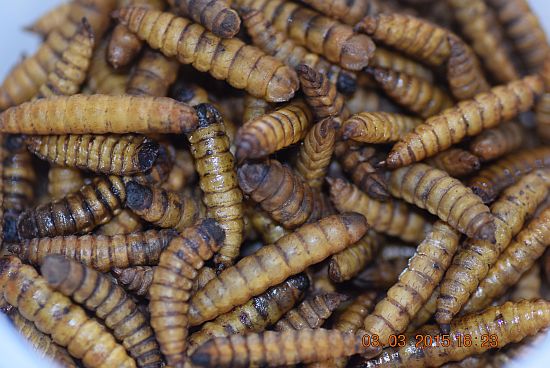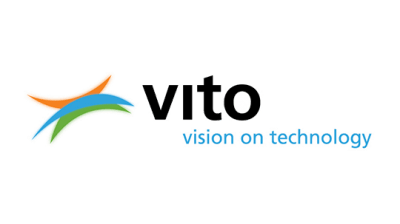Millibeter
Millibeter gets their teeth into sustainable waste processing
“Fly larvae convert waste into valuable raw materials”
Johan Jacobs, foudner of Millibeter
|
Millibeter, a company based in Aartselaar, is cultivating the larvae of the black soldier fly (Hermetia illucens) using organic waste. The larvae serve as a fuel for the chemical industry and as food for cattle. “In nature, organic waste is the start of a new chain. Why not industrialise that process?”
Johan Jacobs, founder of Millibeter, is not afraid of an adventure. In 2012, he gave up his career as a diplomat and began cultivating insects in his own attic. “I read about the characteristics of the black soldier fly and saw some economic potential,” says Jacobs. “Meanwhile Millibeter has eight employees and a research laboratory, which processes 100 kilograms of waste per day.” Interesting and voracious creatures Despite the name, the black soldier fly is a harmless species originating in South America. Johan Jacobs: “The flies only eat when they are larvae. All the energy required for the next stage in their lives must therefore be stored during the larval phase. This makes them very interesting gluttons. We feed the larvae with organic waste: in the lab, this is limited to vegetable waste and food scraps, but manure and offal are also among the possibilities. They are ‘harvested’ after a period of 21 days. Only 1 per cent is allowed to develop into a fly. The rest is turned into new resources – including fat, protein and chitin – for the cattle food industry and chemical sector.” There are numerous possibilities. “Chitin can be used as a flocculant in water treatment plants, a base for cosmetics and can be added to cattle feed. You can make floor detergent, shampoo, glue, biodiesel, and lubricants with larvae fat.” A greater return than soya Millibeter gives waste flows a second lease of life and, in the long term, can become a sustainable solution for Europe’s surplus manure. But it does not stop there. “The large-scale cultivation of larvae makes us less dependent on soya, fishmeal, palm fat and coconut oil,” believes Jacobs. “We are currently importing masses of these products from Latin America and South East Asia. Their extraction has a devastating effect on the local environment, not to mention the CO2 emissions during their transportation. Our larvae are also an interesting alternative from an economic perspective. Indeed, the market price for palm and coconut oil is very volatile.” “In addition, larvae offer an interesting advantage in terms of space: the cultivating trays can be stacked. One square metre of larvae provides much more protein than one square metre of soya. Also, the larvae require no extra water in order to grow, as they extract moisture from the waste that they consume.” Banned by law The company still needs to get past several hurdles. “European legislation currently does not allow for insects to be used in the consumption of waste,” claims Jacobs. “At the moment, we can only feed them vegetable waste, as pig manure and offal is forbidden by law. That is a shame, as Flanders produces 18 million litres of pig manure every day, for which there is currently no ecological solution. There are also still restrictions related to the use of larvae in cattle feed, even for larvae cultivated using vegetable matter. The European Commission is currently reviewing the legislation, but this takes time.” Fortunately, the Flemish government believes in Millibeter’s mission. “I was able to set up my company thanks to innovation subsidies. There is certainly the will to adapt the legislative framework, and that applies both to Belgium and Europe. It is simply a matter of time. Meanwhile, we will continue researching the use of offal and manure as a food for larvae. When the law changes we will then be ready to industrialise that process.” Industrial scale So the future looks promising. “During the course of 2017, Millibeter plans to take over a factory with the capacity to process 40 tonnes of organic waste per day. This scale-up is essential for the chemical and cattle feed industry. There is certainly interest in our sustainable solution, but we need to cultivate far more larvae if we are to compete with today’s common resources.” |
|
SUSTAINABILITY BENEFIT IN FIGURES ► Bioconversion rate of 30 per cent: 1 tonne of waste provides about 300 kg of fresh larvae. These contain approximately 60 kg of protein, 50 kg of fat and 7 kg of chitin. ► As from 2017, Millibeter aims to process 40 tonnes of organic waste per day. |
||||
|
BENEFITS ► Larvae convert organic waste into valuable resources. ► The procedure makes us less dependent on imported raw materials whose production is harmful to the environment (fishmeal, palm oil) → beneficial to biodiversity and the climate. ► Larvae are cultivated and fed locally using local leftovers → less transport and therefore fewer CO2 emissions. ► Potential processing method for the gigantic supply of manure in Flanders → not only better for the environment, but also a cost benefit for Flemish farmers. |
||||
Millibeter
Sectors Food ›

